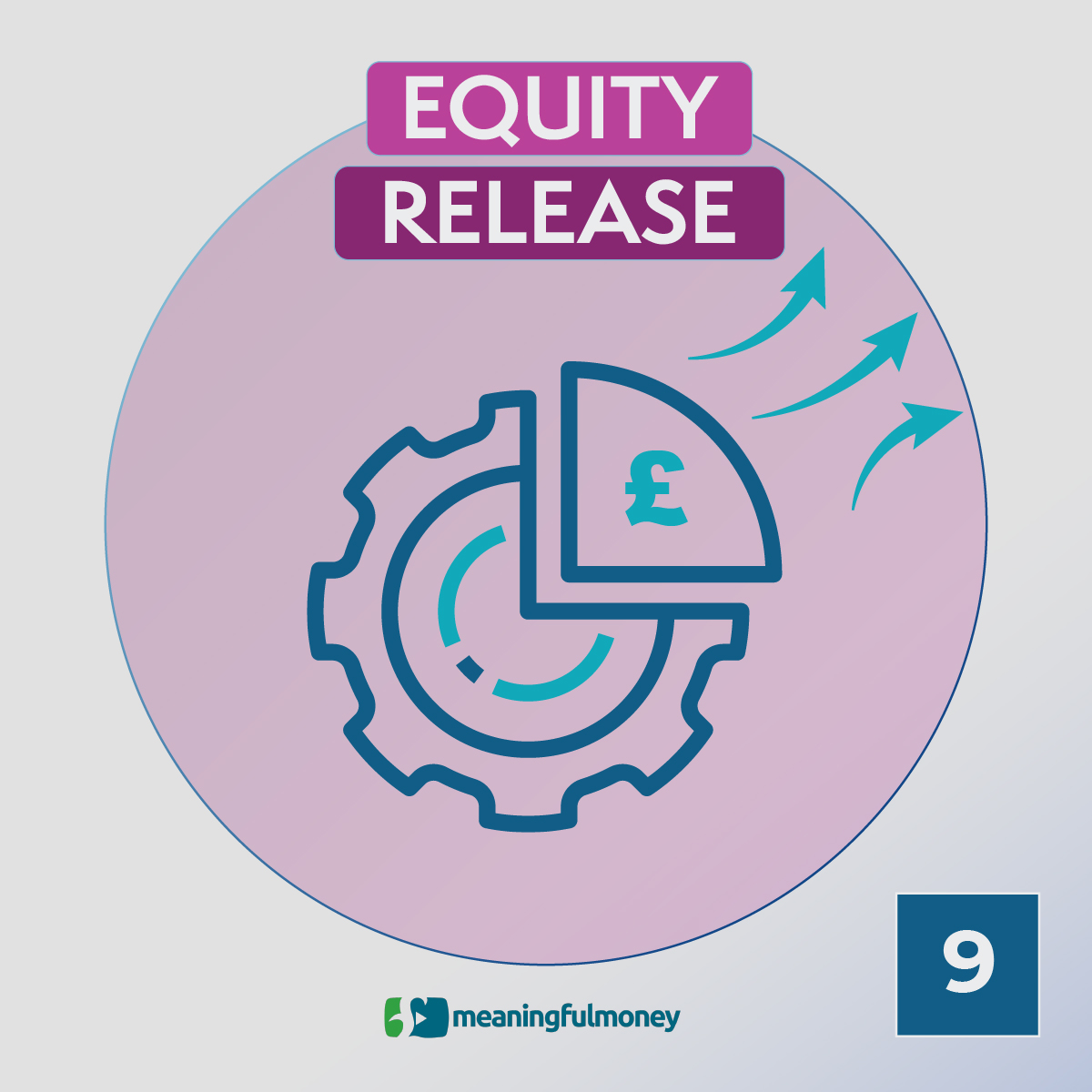Today we’re going to talk about Equity Release, and contentious subject for some but a useful tool in financial planning for older folks who are asset-rich, but cash-poor. We’ll recount a couple of real stories from our own experience as advisers and then go over what you need to know and do about using Equity Release for your own financial planning or for your older family members, perhaps.
Mechanics of Equity Release
Lifetime Mortgage
- Lump sum, ‘income’ or facility.
- Only pay interest on what you actually draw down. Interest rate usually set at prevailing rates then and fixed or capped.
- Interest can be paid or rolled up.
- Only repayable on death or full-time move into care.
Advantages
- You receive a tax-free cash lump sum to spend as you wish.
- You retain ownership of your property and may benefit from any increase in its value.
Disadvantages
- Equity release reduces the value of your estate and the amount that goes to your beneficiaries when the property is sold.
- Equity release may work out more expensive in the long term than downsizing to a cheaper property.
- With lifetime mortgages, you may face early repayment charges if you want to pay off your loan early.
- If your needs change after taking out a lifetime mortgage product, for example if you need care at home or to downsize.
Home Reversion
- Property is bought by the provider, releasing tax-free cash – you are granted a right to live there for life or full-time move into care.
- You’ll get much less than the market value of your home.
- Don’t have to sell it all, though.
Advantages
- You receive a tax-free cash lump sum to spend as you wish.
- Unless you sell 100 per cent of your property, you continue to share in any increase in its value.
- You know what share of your home you can leave to your family, although you do not know the value of that share.
- As home reversion plans are not loans, there is no interest to pay.
Disadvantages
- Home reversion reduces the size of your estate and may work out more expensive than downsizing to a cheaper property.
- Unless you have sold only a proportion of the property, you or your beneficiaries do not gain from increases in its value.
- If you die soon after taking out a plan, you have effectively sold your house (or a share of it) cheaply. Some plans give a rebate (called ‘capital protection’) if you die in the first few years of signing up. This option is only available if selected at the outset and reduces the amount you get.
This is not something you can DIY – the FCA requires advice to be given to anyone considering Equity Release.
- Make sure any adviser is regulated – check the FCA Register
- Make sure they have the relevant exams and experience – ask them.
- Make sure any recommended provider is a member of the Equity Release Council – voluntary membership organisation whose overarching principles offer protection for customers.





